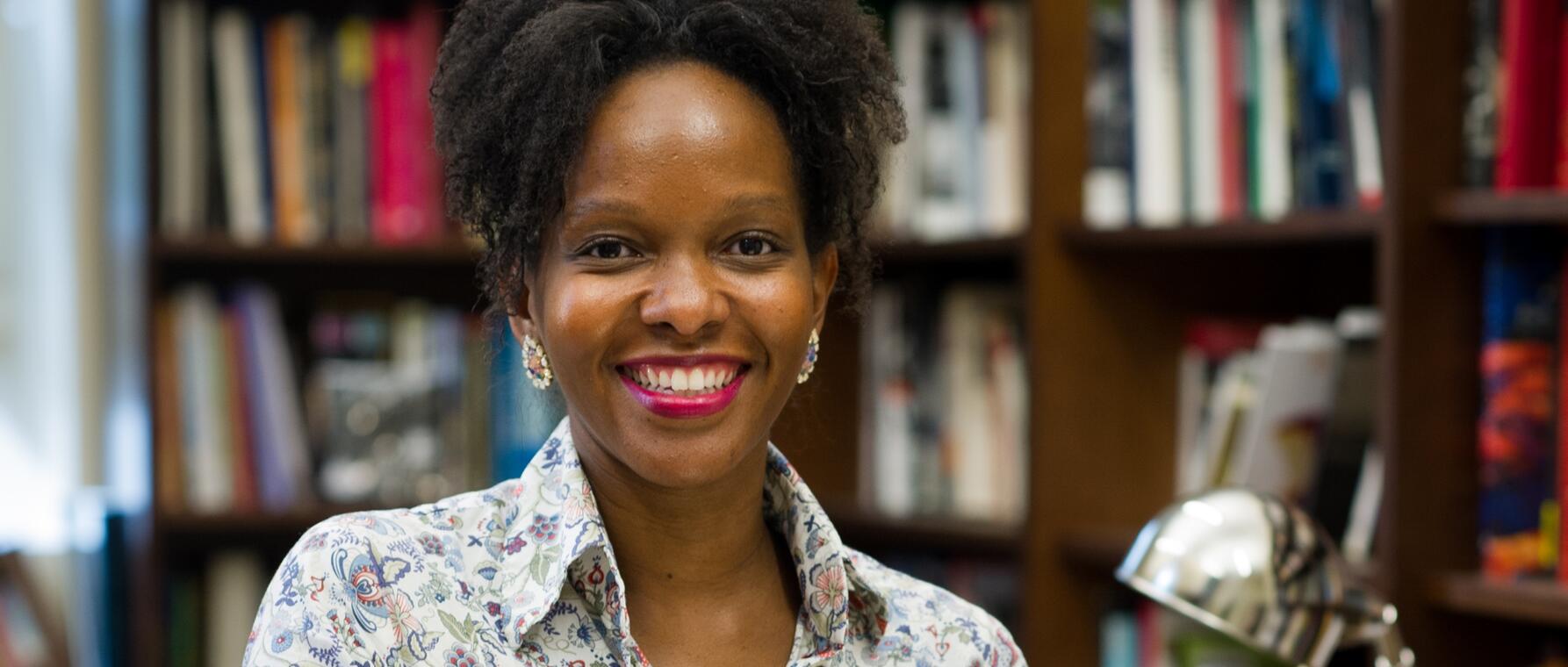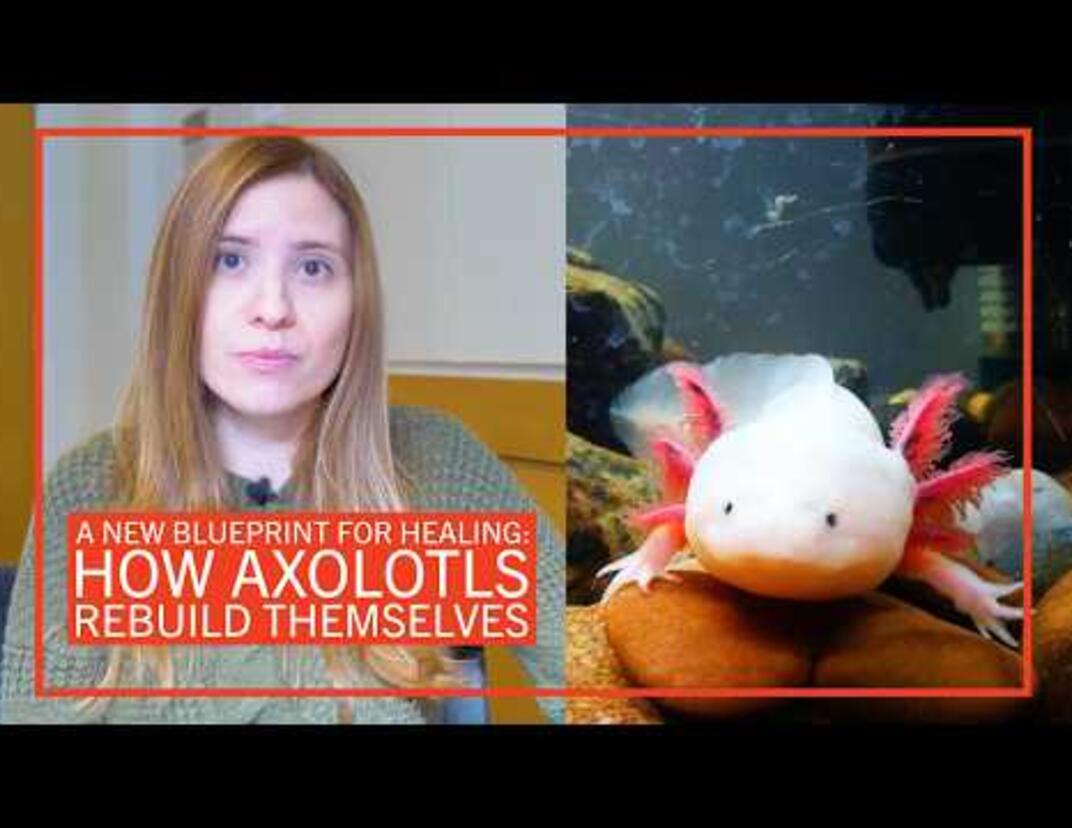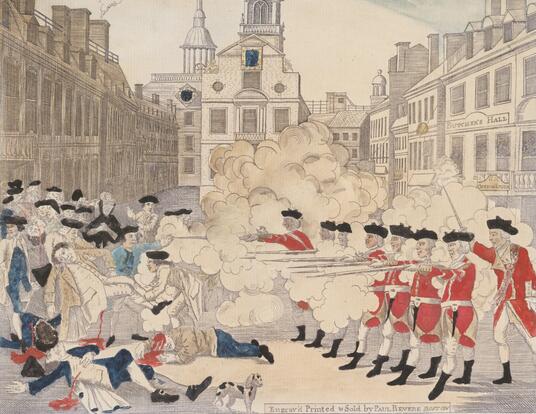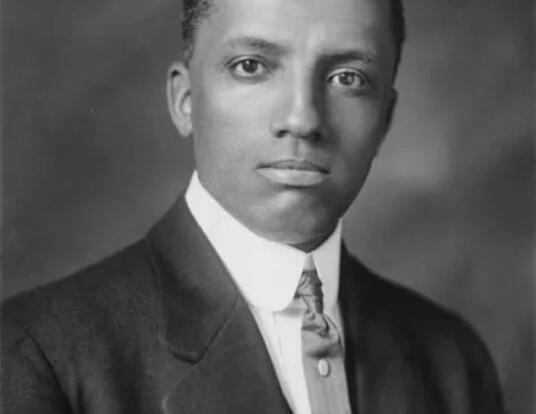A Thousand Directions at Once
Imani Perry, JD/PhD '00, talks about her new biography of Lorraine Hansberry, Looking for Lorraine.

Imani Perry earned a JD from Harvard Law School and a PhD in the History of American Civilization from GSAS in 2000. Now the Hughes-Rogers Professor of African American Studies at Princeton University, Perry taps multiple fields of study in her scholarship. She most recently published Looking for Lorraine, an acclaimed biography of Lorraine Hansberry, the author of the groundbreaking play A Raisin in the Sun. Looking for Lorraine was named one the New York Times Book Review's 100 Notable Books of 2018.
What drew you to Lorraine Hansberry?
Hansberry is one of the most important figures in the history of American theater. While scholarly essays have focused her plays A Raisin in the Sun and The Sign in Sidney Brustein’s Window, not much work exists concerning her life and thought and her personal journey. She wrote the most widely produced play by a Black woman in US history, yet there’s a substantial gap of knowledge about her.
At the time, Hansberry was thinking about the issues that continue to inundate public life today—about gender, sexuality, and race, about what our responsibilities are as people of conscience, and about how to struggle with power and injustice. She’s a muse, an inspiration, and a model all at once, and I thought it would be wonderful to write about her. As I read her work and her diaries, I also believed my background as a thinker would complement her story well.
You seem to have a strong personal connection with her that dates back to when you first read A Raisin in the Sun.
I read A Raisin in the Sun in elementary school. My dad really loved Lorraine Hansberry and quoted her frequently. My aunt’s high school performed the song Young, Gifted and Black about her life. And so, she’s always been around me. I grew up in a milieu of activist intellectuals, and she had a particular presence in that world.
But I found after writing Looking for Lorraine that many people feel deeply and personally connected to her. There’s something about her character, her voice, her presence—even though people don’t know that much about her, she resonates strongly with many of them. So, yes, I have a personal connection, but I also think there’s something about who she was that draws people.
What do you want readers to take away from Looking for Lorraine?
I hope that they take away from it a sense of Hansberry’s historic significance. I hope they take away an understanding that she was as much an intellectual as she was an artist, that she was a speaker of justice, but also of community. And as a result, I hope that people take from her life a sense that it is good to be expansive and exploratory and impassioned, so that her story becomes a testament to what makes a life well-lived and meaningful.
Your own life has interesting parallels with Hansberry, in particular, your PhD thesis on race in US law and literature.
One of the texts I wrote about in my dissertation was Marrow of Tradition [a 1901 novel about the rise of the white supremacist movement], which Hansberry tried to turn into a play—something I didn’t know at the time. Her life was shaped by a lawsuit concerning exclusionary covenants that her father brought, Hansberry v. Lee, which was decided by the Supreme Court in 1940. She’s a literary person and she’s interested in politics.
But her desire to read everything and engage fully in life resonates with me, as well as her self-criticisms. Ultimately, understanding her life made me less critical of my own because I thought, oh, it’s OK: Here is someone who created beautiful things who was also going in a thousand directions at once.
Hansberry was very connected to the history of Black life in the United States, to Jewish intellectual communities, and to the Black South and Chicago, which were important parts of my life as well. So yes, we have a lot in common.
Tell me about your decision to seek a JD/PhD and not just a PhD.
I made the decision to pursue a PhD because I wanted to learn the lessons of the mind, to read and think as an essential part of my life. My decision to seek a JD came because I wanted training in the structure of society as a way of addressing questions I wanted to ask: Why is the struggle for justice so elusive? What kind of social order could we pursue that would be kinder and more humane?
Looking for Lorraine is a biography of an African American playwright. Vexy Thing: On Gender and Liberation also came out this year. Two of your other books focus on the Black national anthem and hip hop. How do you choose what to focus your scholarship on?
My work does revolve around two considerations. One concerns my journey as an intellectual and as a scholar, where I want to contribute to thinking about how we can move toward liberation or freedom or justice for oppressed people. This is the idea I address in Vexy Thing. The book asks, what is patriarchy like? What is it as a juridical structure established with modernity? How was the law and majority ordered to produce patriarchs with power over others? And how do we deal with the residual effects of those structures in the digital age? How do we describe what’s happening so that we can move toward real liberation? Why is it that we say that we don’t want to be racists and yet racial inequality is not only persistent, but also extended and reproduced? That’s a question I’ve asked repeatedly.
Another set of questions I’ve asked concern African American culture. I wrote about hip hop, for example, and I’m interested in how ideas about the world make their way into aesthetics as well as art. Similarly, in Looking for Lorraine, Hansberry is formed by a cultural community and tradition, but she’s really trying to figure out what liberation looks like and how to put her art in service of that.
Even though my projects go in many directions, these ideas always undergird them. If I decide to pursue a question, I ask what I need to do in order to answer it. That’s half the fun, figuring out how to answer the question.
What’s next for you?
I have a short book of essays coming out next September, and I’m also deciding whether to go back to my dissertation. After 20 years of teaching race, law, and literature, I do want to write about how the law has figured in the African American literary tradition, how it was a concern for the community, and how ideas about the law make their way into literature.
Photo by Sameer Khan, Fotobuddy, LLC
Get the Latest Updates
Join Our Newsletter
Subscribe to Colloquy Podcast
Simplecast





